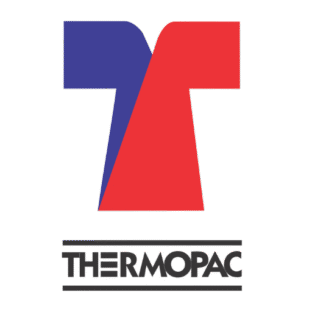In an era of heightened environmental awareness and sustainability mandates, industries worldwide are under increasing pressure to manage their waste streams responsibly. One such critical area is the re-refining of used engine oil, a process that not only helps conserve finite resources but also prevents environmental contamination. However, this sector operates under a complex and evolving regulatory framework that varies across regions. For businesses engaged in used oil re-refining, understanding and aligning with international compliance standards is not just a best practice—it’s a necessity.
At Thermopac, with over two decades of leadership and 31 re-refinery installations across five continents, we have gained deep expertise in engineering solutions that meet and often exceed global environmental regulations. In this blog, we take a closer look at the global regulatory landscape for used oil re-refining and how Thermopac’s systems are designed to keep clients fully compliant, wherever they operate.
Understanding the Need for Regulatory Compliance
Used oil is classified as hazardous waste in most jurisdictions due to the presence of heavy metals, PAHs (polycyclic aromatic hydrocarbons), and other contaminants. Improper disposal or unregulated processing of used oil can lead to soil degradation, water pollution, and long-term ecological damage. As a result, national and international agencies have developed rigorous regulations to govern its collection, transportation, treatment, and re-refining.
Failure to comply with these standards can lead to severe penalties, shutdowns, or reputational damage—making compliance an integral part of any used oil management strategy.
Key International Regulations Impacting Used Oil Re-refining
Let’s examine some of the major global regulations and guidelines that govern the used oil re-refining industry:
1. Basel Convention
An international treaty signed by over 180 countries, the Basel Convention regulates the trans boundary movement of hazardous wastes, including used oil. It mandates proper documentation, tracking, and environmentally sound management of waste oil across borders.
2. European Union Waste Framework Directive (2008/98/EC)
The EU treats used oil as a priority waste stream and mandates that re-refining must be prioritized over energy recovery or incineration. Operators are expected to implement Best Available Techniques (BAT) for used oil processing and ensure emissions are minimized.
3. US EPA Used Oil Management Standards (40 CFR Part 279)
The Environmental Protection Agency (EPA) in the United States sets forth rules on the proper handling, storage, and recycling of used oil. Re-refiners must meet specific performance criteria related to contaminant removal and ensure that recycled oil meets the quality thresholds defined in the regulations.
4. Local and Regional Regulations
Countries like Australia, Canada, UAE, and South Africa have their own specific frameworks governing the collection and re-refining of used oil. These often emphasize emissions control, health and safety standards, and traceability.
Thermopac: Engineering for Compliance, Globally
Navigating these regulatory frameworks across geographies can be challenging for re-refining companies—but that’s where Thermopac’s engineered solutions come in. Our modular, scalable, and fully automated re-refining plants are designed to comply with stringent international standards, giving clients peace of mind and regulatory confidence.
Here’s how Thermopac ensures compliance across all operational levels:
1. Environmental Soundness by Design
Our plants are built using Best Available Techniques (BAT) for thermal treatment, distillation, and fractionation, ensuring that air emissions, liquid effluents, and solid residues are well within permissible limits.
2. Closed-Loop Systems
Thermopac’s technology emphasizes zero discharge, vapor recovery, and internal reuse of byproducts, meeting the environmental benchmarks set by EU and US standards.
3. Emissions Control Systems
Our units are equipped with scrubbers, cyclones, condensers, and advanced filters to ensure that air pollutants are minimized to meet national and international air quality regulations.
4. Traceability & Documentation
From feedstock input to end-product output, every stage of our process is traceable. We provide full data logging and process control systems that support compliance documentation as required by regulatory bodies.
5. Quality Assurance
We help clients meet the base oil quality parameters as mandated by US EPA and EU standards. Our plants can produce Group I and Group II base oils with consistent clarity, color, and viscosity index.
6. Turnkey Support with Regulatory Guidance
Thermopac not only supplies the technology but also assists clients with regulatory audits, licensing documentation, and environmental impact assessments (EIA) required by local authorities.
Why Compliance is a Strategic Advantage
In a competitive and sustainability-driven world, compliance is no longer a cost burden — it is a strategic differentiator. Investors, customers, and governments are all aligning toward ESG (Environmental, Social, and Governance) metrics. A fully compliant re-refinery operation positions your business as a responsible and forward-looking enterprise.
At Thermopac, we don’t just provide equipment — we provide a long-term partnership rooted in regulatory confidence, environmental stewardship, and global scalability.
Conclusion: Compliance without Compromise
The global movement toward sustainable industrial practices is here to stay. As regulations grow tighter and oversight increases, businesses involved in re-refining must ensure their technologies and processes are aligned with international best practices.
Thermopac stands ready to help you navigate this evolving landscape, offering world-class re-refining solutions engineered for full compliance—today and tomorrow.
Connect with us to explore how Thermopac can future-proof your re-refining operations with technologies that meet and exceed global regulatory expectations.
www.thermopac.in | info@thermopac.in
SEO Keywords:
used oil re-refining, global used oil regulations, compliance in oil re-refining, Thermopac re-refinery solutions, hazardous waste oil management
